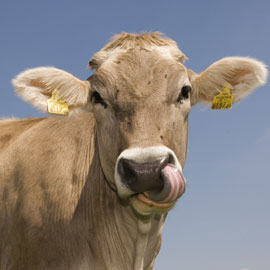Drought could reduce livestock numbers, report warns

Continued dry weather could increase risks to supplies of drinking water for livestock, a new report warns.
The Environment Agency said it was likely that the quality of grass would continue to decrease, resulting in more expense for farmers re-seeding and reductions in livestock numbers owing to less grass to feed animals.
Limited grass growth could also lead to water quality problems as nutrients are washed into watercourses due to the lack of absorption by plants.
The Drought Prospects Report, published on Monday (12 March) by the Environment Agency, said it was likely current restrictions on agricultural abstraction in central, east and south-east England would remain – and additional restrictions will be enforced.
“River flows and groundwater levels are unlikely to recover and will pose significant risks to spring planting and subsequent summer abstraction,” said the report.
“Those farmers relying on refill of winter storage reservoirs to the normal levels to irrigate crops later in the year, will be hit hard.”
Spray irrigation prospects looked much less favourable for this time of year than they have for several years, particularly in East Anglia, the report warns.
As a result, this will have a significant impact on food production.
“For example in south-east England, a dry spring could affect fruit, vegetable – including potatoes – and salad growers this summer,” said the report.
Drought management actions, such as hands off flow restrictions and section 57 irrigation bans, are “probable” across parts of central, east, south-east and south-west England, the report warned, particularly if there is below average rainfall over the coming months.
Environment Agency chairman Chris Smith said: “We are working with businesses, farmers and water companies to meet the challenges of a continued drought.
“Our report urges water companies, farmers and other businesses to look again at ways to improve short term water storage, share water resources where possible, and reduce the amount they and their customers use.”
The report coincided with an announcement that water companies amid drought conditions across southern and eastern England are to introduce hosepipe bans this spring.
Seven firms said they will impose water restrictions after two unusually dry winters left reservoirs, aquifers and rivers well below normal levels.
Read more
- Read the Environment Agency’s Drought Prospects report
- Visit our special report on the drought
- Have you been affected by the dry weather? Have your say on our forums
